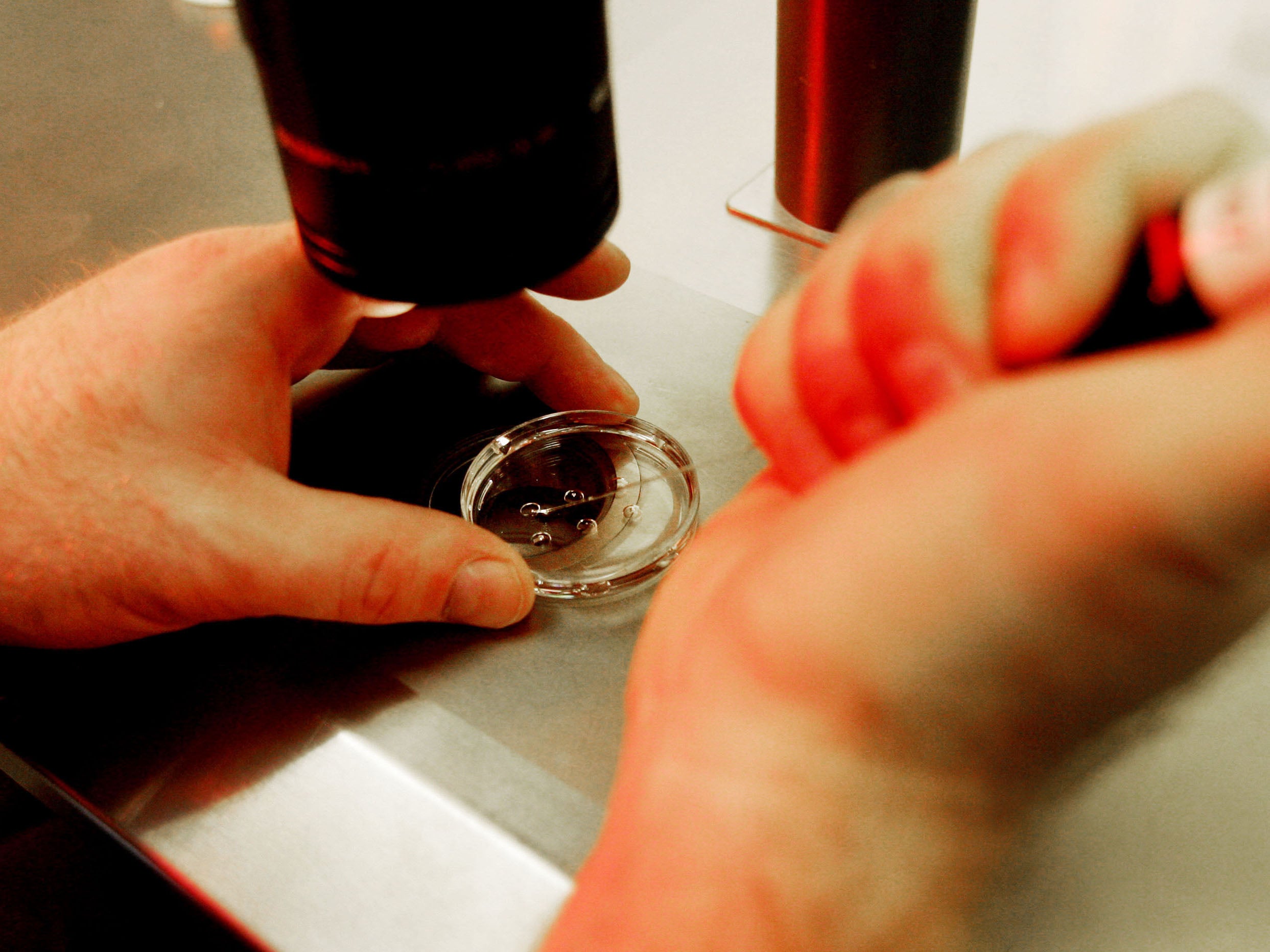IVF is costly and ineffective – time to stop offering it on the NHS
With budgets stretched to breaking point, hospitals will deny care to obese people and smokers on the basis that their unhealthy lifestyle is to blame for their illnesses, but are willing to pay for people to become parents if they fancy it


Yesterday it was revealed that local NHS cuts have forced 13 areas of England to restrict or altogether stop offering IVF this year. This is not new – The Independent reported in 2015 that two Clinical Commissioning Groups in Essex had stopped funding the treatment because they simply can’t afford it.
The idea that access to such services should be contingent on living in the right catchment area is abhorrent, but the fact that local NHS bosses are resorting to this measure begs a bigger question – why is the NHS funding IVF at all?
A nationalised health service should exist to keep us healthy, both physically and mentally, as individuals and as a society, regardless of class, income, race or creed. The principle that no one should be denied care is one that I hold dear, but there’s a difference between curing illness and curing dissatisfaction. My heart goes out to those who wish to conceive naturally and are unable to do so, but there’s no justification for using public funds to pay for treatment just because it will make some people feel more fulfilled in their life.
The NHS is woefully underfunded in ways which truly put people’s health in jeopardy. There are reports of patients dying in A&E while waiting hours to be seen, delays for cancer screening results due to a lack of staff, and hospitals are planning to cut the number of potentially life-saving operations they perform on patients with heart conditions due to their cost. Earlier this year, the British Red Cross declared a “humanitarian crisis” in the NHS.
And then there are all the vital services the NHS won’t even consider fully funding, such as eye tests, dental treatment, air ambulances, prescriptions and at-home care. Not to mention all the services people who are already parents are denied, such as free antenatal classes. With budgets stretched to breaking point, hospitals will deny care to obese people and smokers on the basis that their unhealthy lifestyle is to blame for their illnesses, but are willing to pay for people to become parents if they fancy it.
IVF is an extortionately expensive – and often ineffective – process which serves only to fulfil people’s whimsical obsession with babymaking, and puts even more long-term strain on the NHS: women who get pregnant via IVF have a higher risk of ectopic pregnancies and are more likely to become pregnant with twins or triplets, which in turn increases the risk of miscarriage, pre-eclampsia, gestational diabetes, anaemia and the need for a caesarian section, which involves further potential complications.
Were we to live in a society with a desperate need for more babies, this might be justifiable, but as it is we’re seeing a huge crisis of overpopulation, which is depleting our natural resources faster than ever. By all accounts, there’s nothing an individual can do to lower their carbon footprint more than not having children, and the United Nations projects an unmanageable population of 9.6 billion by 2050.
Government data showed that in 2016 there were more than 70,000 children in the UK who were in the care of local authorities – in other words, tens of thousands of children need a home, yet we’re spending public money to fund more pregnancies.
Instead of making adoption and fostering accessible (and more financially viable for most people), we’re pushing women towards IVF, a treatment which costs thousands of pounds and has a relatively small success rate – 32 per cent for women under the age of 35, dropping to 20 per cent for those aged 38-39.
Women are already told throughout their lives that their primary role and responsibility is to procreate. Wanting to have biological children is considered the default setting, and women who don’t feel this way are patronised and coerced into changing their minds. Growing a foetus inside a womb is considered a woman’s biggest achievement, pushing a human out of you is supposed to be the happiest day of your life and fulfilment and happiness is supposed to come to us in the form of a sea of dirty nappies, colic, fish finger dinners and school runs.
It’s outrageous that we’re using government money to reinforce the idea that giving birth is as vital a part of a healthy life as getting your appendix out if it’s infected. By funding IVF we’re doing a disservice to the environment, society as a whole, and women for whom the idea that their value lies inherently in their ability and desire to carry a foetus. Moreover, we can’t afford it anymore.
Join our commenting forum
Join thought-provoking conversations, follow other Independent readers and see their replies
0Comments